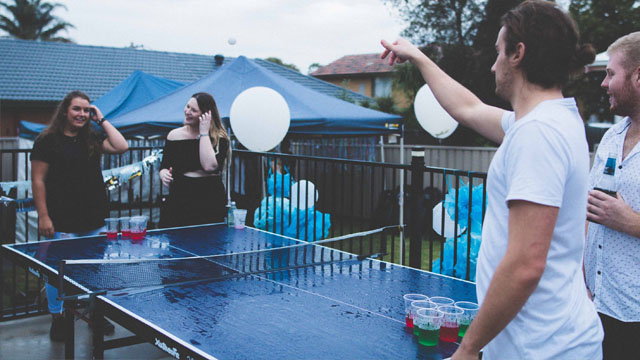The Next Big Thing!
If you’re interested in making video games or just learning new skills, then this is the list for you. From beginner steps brainstorming your idea to learning codes and marketing your game, there is a lot to consider!
1. Brainstorm
The very first step to game-developing is to start thinking up ideas. Nobody expects you to make the next Stardew Valley, but take your time to brainstorm ideas, write some notes, and explore what others are doing.
2. Watch Dev Videos
A very helpful tool to understand what game development entails are the videos posted by other developers. Traditionally called game dev vlogs, lots of developers share their process from beginning to end, detailing the various steps of game creation.
3. Do Market Research
When you have the beginnings of your idea figured out, dive in and explore the marketability of it. See how other games in the genre are performing, as well as if the market is too saturated. Unless you’re making the game for yourself, you’ll want to ensure your idea is sellable.
4. Different Engines
There are a variety of tools and engines to explore when it comes to making a game. Think about where you want to make your game, whether you plan on using a software like GameMaker or something like Unity.
5. Learn Coding
It’s also important to learn some basic coding in a language that benefits your game. To figure out which coding language you need to learn, you’ll need to first decide which engine you’re making your game on.
6. Make a Gameplay Loop
What makes games so addictive and irresistible is their gameplay loop. For instance, Stardew Valley has a very satisfying farming time management loop, while Subway Surfer has its innovative dodge method and point system. So explore some ideas and find a loop that works.
7. Tried and True Methods
When it comes to game development, don’t feel like you have to reinvent the wheel. Some methods are successful for a reason, and there’s nothing wrong with taking inspiration from tried and true methods.
 Glenn Carstens-Peters on Unsplash
Glenn Carstens-Peters on Unsplash
8. Share Your Ideas
Feedback is an important part of the game dev process, and there’s nothing worse than trying to build a following after a game is released. You actually want to find fans as you’re working on the game, so share your own dev vlogs, or post your process to social media to attract interest.
9. Manage Your Time
It’s important to commit some time to game development, whether that’s an hour every day or a few hours every month. Either way, you want to create a schedule of sorts and stick to it.
10. Playtest Early
You can never playtest enough, so be sure to take every opportunity to try new features as you’re developing. You don’t have to wait until the game is done to test it, and you should be organically assessing your progress as you go.
11. Accept Bugs
When you are testing your game, or even after launch, it’s quite normal for bugs to happen. This is just part of the process and doesn’t mean you’re a bad developer. Take your time to address them, and you’ll be better for the long run.
12. Take a Course
If you’re still feeling lost or need more structure when it comes to tackling game development, consider taking a course. You don’t have to go to school, but signing up for an online masterclass or a workshop is another great way to learn.
13. Follow Tutorials
Of course, you can also use online sites like YouTube to find specific tutorials or guides to address problems you happen upon. Whether you need a huge guide to get started, or just want more insight on a certain coding language, these tutorials are quite helpful.
14. Ask For Help
If you can’t find what you’re looking for, then just go ahead and ask for help. There are lots of game development forums online where you can ask for help or even playtesters, and many of them are eager to participate.
15. Look For Collaborators
Speaking of help, you don’t have to do everything yourself. Lots of games require actual teams, and you don’t have to be a full-fledged company to collaborate with others. Game dev forums are also a great place to team up with coders, artists, and writers.
16. Join a Game Jam
A game jam is a collaborative and time-limited event where developers compete to make games from scratch in a few days. This is a good way to practice mechanics, meet like-minded people, and get feedback.
17. Finish Something
Even if it’s not a triple-A project or a huge role-play sim, your goal is just to finish a game. Start with small manageable games, as you can always tackle bigger projects when you’re more seasoned. Additionally, these smaller games add to your portfolio.
18. Share Your Game
Finally, once your game is in a solid state, share it to the world. Unless you made it exclusively for yourself or your portfolio, post it on video game sites so people can download it and enjoy your work!
19. Consider Marketing
If you have high hopes for your game and want it to garner popularity, consider learning some marketing strategies. Buy ads, post about it to social media, and send copies to influencers to get the word out!
20. Your Next Game
Take some time to enjoy your accomplishment, but once you’re feeling ready, start thinking about your next game! Lots of developers make a few games before finding their big break, so keep at it!



























